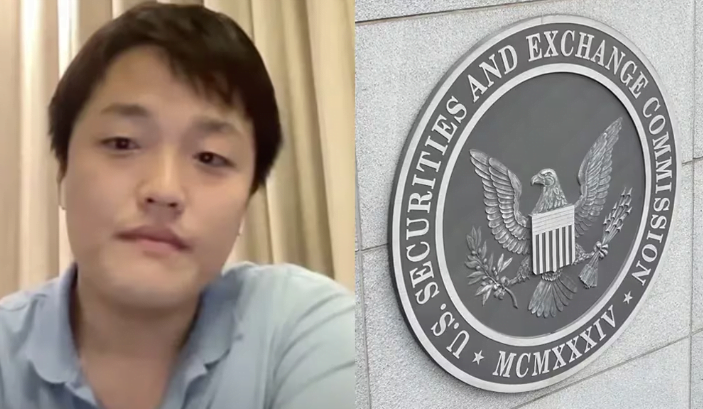The U.S. Securities and Exchange Commission SEC is making headlines with its proposed $5.3 billion fine against Do Kwon and Terraform Labs, setting a new precedent for penalties against cryptocurrency projects. This fine is significant not only for its size but also for the message it sends to the industry: the SEC is intensifying its scrutiny of crypto firms.
Background on Do Kwon and Terraform Labs
Do Kwon, a prominent figure in the cryptocurrency industry, is the founder of Terraform Labs, the company behind the UST stablecoin. Terraform Labs gained notoriety for its algorithmic stablecoin, which experienced a catastrophic collapse two years ago. This event sparked a multi-billion-dollar industry-wide contagion and led to extensive scrutiny from regulators.
The SEC’s Penalty on Do Kwon and Terraform Labs
The ‘s decision to seek a $5.3 billion fine against Do Kwon and Terraform Labs comes after a protracted investigation and a short trial in New York. The company and Kwon were found liable for fraud, primarily for concealing the inherent risks in their trading scheme and unsustainable returns. The fine aims to deliver a clear message to the industry about the consequences of non-compliance.
Impact on the Crypto Industry
This substantial penalty has far-reaching implications for the cryptocurrency industry. It signals that the is no longer taking a hands-off approach and is instead prepared to take decisive action against crypto firms that engage in fraudulent activities or fail to comply with regulations. This could lead to increased regulatory scrutiny across the industry.
Comparison with Other SEC Cases
In recent times, the SEC has taken action against other high-profile cryptocurrency firms, such as Ripple and Binance. Ripple faced a proposed $1.8 billion penalty, while Binance dealt with a $4.3 billion fine imposed by U.S. regulators. These penalties indicate a shift in the strategy, with a focus on imposing significant fines to deter future violations.
Reasons Behind the SEC’s Aggressive Approach
The SEC’s legal strategy appears to be influenced by the concept of “terrorem,” which aims to create fear and compliance within the industry. As crypto projects grow in size, so does the potential for disgorgement, further motivating the to pursue aggressive penalties. The approach is intended to bring the crypto industry within the scope of securities law.
Arguments for Reducing the Penalty
Do Kwon’s legal team is arguing for a reduction in the fine, citing a lack of jurisdiction and requesting a maximum penalty of $1 million. Similarly, Terraform Labs’ defense is pushing for a cap of $3.5 million. Ripple has also proposed a civil penalty of no more than $10 million, arguing that the suggested fine is excessive compared to previous crypto settlements.
Conclusion
The SEC’s actions against Do Kwon and Terraform Labs signify a turning point in the agency’s approach to regulating the cryptocurrency industry. While some believe the penalties are too harsh, others argue that these fines are necessary to maintain order and protect investors. As the industry evolves, regulatory compliance will become increasingly important for crypto firms.
FAQs
What is the significance of the fine against Do Kwon and Terraform Labs? The fine is significant because it represents the SEC’s most substantial penalty against a cryptocurrency project to date. It sends a strong message to the industry about the consequences of non-compliance and fraud.
How does the SEC determine penalties for crypto firms? The SEC considers factors such as the degree of unlawfulness, harm caused to investors, and the extent to which defendants complied with regulators. Disgorgement and civil penalties are often used to return funds to investors and deter future violations.
What are the potential implications for the crypto industry? The actions could lead to increased regulatory scrutiny across the industry, prompting crypto firms to prioritize compliance and risk management to avoid facing similar penalties.
Is the approach to crypto regulation changing? Yes, the approach appears to be becoming more aggressive, with larger fines and a focus on bringing the crypto industry under the umbrella of securities law.
What challenges might the SEC face in regulating the crypto industry? The crypto industry presents unique challenges for regulators due to its rapidly evolving nature and the global scope of its operations. The may face difficulties in establishing clear regulatory frameworks and enforcing compliance across different jurisdictions.
